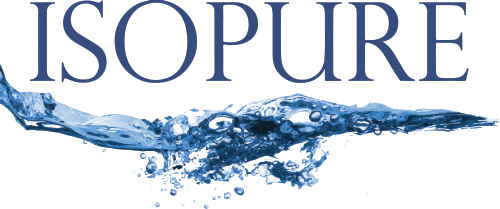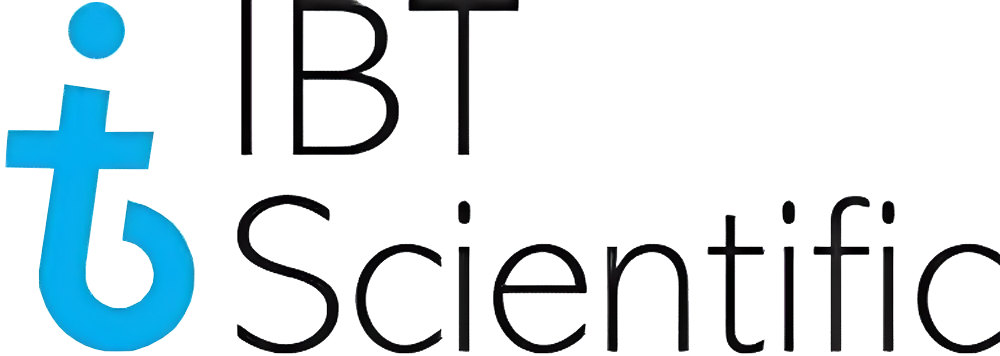24 – 27 March 2014 – Tropicana Hotel – Las Vegas, Nevada
2014 Symposium Contact Hour Certificates
You can print your own certificate by going to www.mtsreport.com/nant/14 Enter your last name and the four digit number on your badge. You can look up your name to get your four digit number.
2014 Symposium Presentations
Presentions from the 2014 Symposium are posted below as received by speakers. Please feel free to download these presentations to use for in-service training in your dialysis facility.
- Blood: The Fluid Highway of Life - John Sweeny, CHT
- Budgeting for the Biomed Department - Anthony Messana
- Cardiovascular Disease - Jenifer Pederson, RN, MSN
- Complications of Dialysis - Amelia Bell Hawkins, MSN, RN, APRN-BC, CRNP-F
- Conditions of Coverage - Connie Beldon, RN, BSHSA, CIT Bureau Chief, Medical Facilities Licensing, AZ Department of Health Services
- Dialyzer: There's an Owner's Manual in that Box! - John Sweeny, CHT
- Impact of Reimbursement - Anthony Messana
- Life Stage Considerations - Jane Heupel, MSW, LSW
- Nocturnal Dialysis - Jennifer Lunt, CHT
- Social Media Do's and Don'ts - Peter Melenovich, PhD, RN, CCRN
- Staying True to Your Dialysis Prescription - John Sadler, MD
- Test Strips: Tips, Techniques and Taboos - Vern Taaffe
- Total System Disinfection - Kelly Ross
- Venous Needle Dislodgement - Michael Morales
- What the Dialysis Doctor Needs to Know - John Sadler, MD
- When Mother Nature Throws You a Curve - Rich Benner, CSWIII, Mar Cor Purification
2014 Symposium Program Highlights
- Click here for the 2014 Schedule-at-a-Glance (416 KB PDF)
- Click here to download the 2014 Symposium Brochure (1.5 MB PDF)
Exhibitor Information
- Click here for the Exhibitor Prospectus for 2014 NANT Symposium
- Click here for the Exhibitor Contract
Session Information
Workshops | General Sessions | Concurrent Session Tracks
Click on the ![]() symbol next to each session below in order to download the event to the calendar on your device.
symbol next to each session below in order to download the event to the calendar on your device.
2014 Workshops
- Dr. Haimanot Wasse, Associate Professor of Medicine, Emory University School of Medicine
- Dr. Larry Scher, Professor of Clinical Cardiovascular & Thoracic Surgery, Albert Einstein School of Medicine
- 8:30 am – 4:45 pm, 8.1 contact hours
- Fee: $75 for NANT members $95 for non-members
Topics to be covered at this workshop are: What Type of Access is This? | Proper Examination of Acces | Cannulation Techniques/Updates | Access Placement, Complications and Maturation | Access Surveillance | The Importance of a Vascular Access Coordinator | Panel Session: Vascular Access
Workshops presented by B. Braun, Fresenius Medical Care and Mar Cor Purification provide opportunities for technicians to gain in-depth knowledge about each company's products and dialysis services.
There is a $15 charge to attend these workshops, which include refreshment breaks (but not lunch). To ensure your participation, you must register in advance.
Workshops begin at 8:00 am and end by 4:00 pm, with a break for lunch. All workshops offer a full day of education and up to 7.0 contact hours. Space is limited – register NOW!
![]() New Water Treatment and Hemodialysis Equipment Technology - Duane Martz, B. Braun Medical
New Water Treatment and Hemodialysis Equipment Technology - Duane Martz, B. Braun Medical
- Plan to attend the B. Braun workshop to learn more about new features in water treatment technology, along with ongoing state of art HD machine technology. From the faucet to the fistula, innovative product technology may help improve clinical outcome while reducing labor cost associated with routine maintenance.
![]() Machine Troubleshooting – David Carlson, CBET, Fresenius Medical Care, NA
Machine Troubleshooting – David Carlson, CBET, Fresenius Medical Care, NA
- This workshop will provide insight into how to troubleshoot the Fresenius dialysis machines
and review of common problems and how to avoid having them happen.
Water Purification for Dialysis – Richard Benner, CWSIII, Mar Cor Purification![]()
- Industry trends that impact dialysis will be discussed including: impact of new ISO standards for water, components of a typical water treatment system, new advances in water purification, the use of heat for disinfection, will be covered. How water quality plays an essential role in these new trends will be reviewed.
General Sessions
Tuesday
 Staying True to Your Dialysis Prescription – John Sadler, MD
Staying True to Your Dialysis Prescription – John Sadler, MD
- Dr. Sadler has continually strived for optimization of quality patient-centered care. An effective patient advocate with a "patients come first" approach, Dr. Sadler is the President and CEO of the Independent Dialysis Foundation, a regional non-profit dialysis provider in Baltimore, MD. When you enter a prescription into a dialysis machine, do you know exactly what the patient will receive? Errors, random variations and design details about how devices and disposables used all affect the delivered prescription. This session will explore examples and discuss how you, the dialysis technician, can better control the delivery of the prescription to your patient.
 CMS Survey Preparedness – Connie Beldon, RN, BSHSA, CIT Bureau Chief, Medical Facilities Licensing, AZ Department of Health Services
CMS Survey Preparedness – Connie Beldon, RN, BSHSA, CIT Bureau Chief, Medical Facilities Licensing, AZ Department of Health Services
- Will you be ready the day the CMS Survey team walks into your dialysis clinic unannounced? This session will review vital steps you can take now to be ready for that day.
 Life Span Considerations – Jane Heupel, MSW, LSW
Life Span Considerations – Jane Heupel, MSW, LSW
- Dialysis impacts patients differently at different points of their life span. This session addresses the considerations dialysis technicians need to take to effectively provide their patients with information they need at every stage.
 Social Media Do's and Don'ts – Peter Melenovich, PhD, RN, CCRN, CNE, GateWay Community College
Social Media Do's and Don'ts – Peter Melenovich, PhD, RN, CCRN, CNE, GateWay Community College
- You have a Facebook account, and you Twitter with your friends. Should you friend your patients? What's the harm in complaining about your supervisor on your personal page… they'll never see it, right? Did you know that your current or future employer can see all those pictures you'd never take to work? What goes on the web is very difficult to remove. This session focuses on how to use social media effectively.
 Reimbursement and Its Impact on YOUR Dialysis Unit – Anthony Messana, Executive Director – Renal Services, St. Joseph Hospital
Reimbursement and Its Impact on YOUR Dialysis Unit – Anthony Messana, Executive Director – Renal Services, St. Joseph Hospital
- You have nothing to do about your unit's reimbursement – right? Wrong! The new reimbursement rules have an impact on every aspect of the dialysis unit. This session addresses just what the impact is on you every day you work.
 Complications of Dialysis – Amelia Bell Hawkins, MSN, RN, APRN-BC, CRNP-F
Complications of Dialysis – Amelia Bell Hawkins, MSN, RN, APRN-BC, CRNP-F
- It would be great if all dialysis went smoothly for patients – but we know that doesn't happen all the time. This session will review the complications that occur and discuss options for handling them in the best way for the patient's continued well being.
Thursday
 Day in the Life of a Dialysis Patient
Day in the Life of a Dialysis Patient
- Symposium Committee members are conducting video interviews with four different dialysis patients – each using a different modality. This session will focus on what your patient's life is away from the dialysis clinic. Don't miss this session!
 Taking Care of Your Patient; Taking Care of Yourself – Steve Johnson
Taking Care of Your Patient; Taking Care of Yourself – Steve Johnson
- This dialysis patient will discuss ways you can care better for your patients – and better for yourself.
 Initial Motivators & Mojo Maintenance – Renise Smith, CCHT
Initial Motivators & Mojo Maintenance – Renise Smith, CCHT
- Why did you originally decide to become a dialysis technician? What kind of changes have you made along the way? In doing so, have you lost your mojo? This session address these questions and provides specific ideas of how you can maintain your motivation for the future. This is a great session to take back to your clinic to help your fellow health care team members maintain their mojo!
Concurrent Session Tracks
Clinical – Intermediate
 Renal Anatomy and Physiology – Susan Hansen, MBA, CHT, RN, CNN, Executive Director, Renal Education Association
Renal Anatomy and Physiology – Susan Hansen, MBA, CHT, RN, CNN, Executive Director, Renal Education Association
- Did you know that people can have more than two kidneys? This is just one of the areas that this session explores as it both reviews renal anatomy and further discusses the physiology and why knowing this will help you better take care of your patients.
 Nocturnal Dialysis – Jennifer Lunt, CCHT, Dialysis Technician, XCD Management
Nocturnal Dialysis – Jennifer Lunt, CCHT, Dialysis Technician, XCD Management
- More patients are interested in nocturnal dialysis. Do you know enough to answer your patient's questions about this modality?
 PD as the Preferred Initial Dialysis Modality – Vijay Kumar, MD, MMM, Senior Partner, Medical Director, Southwest Kidney Institute PLC
PD as the Preferred Initial Dialysis Modality – Vijay Kumar, MD, MMM, Senior Partner, Medical Director, Southwest Kidney Institute PLC
- Peritoneal dialysis can be a useful modality for patients that can't tolerate the rapid changes of fluid balance associated with Hemodialysis. Learn how PD can help your patient when hemodialysis is not an option.
 Venous Needle Displacement – Michael Morales, CHT, CCNT, CCHT-A, CBNT, CEO and CMO, Dialysis Education Services
Venous Needle Displacement – Michael Morales, CHT, CCNT, CCHT-A, CBNT, CEO and CMO, Dialysis Education Services
- Venous Needle Dislodgement (VND) occurs when a venous needle dislodges from a patient vascular access during hemodialysis treatment. VND has the potential to cause significant blood loss in a short period of time. Consequently, it is responsible for serious injury and mortality to dialysis patients and thus, negatively affect the entire hemodialysis spectrum of care. The presentation discusses the severity of VND and its ramifications to patients, health care workers and clinic facilities.
- Additionally, it will discuss a compilation of best practices and other solutions to mitigate morbidity and mortality associated with VND among hemodialysis patients in clinic settings.
 Fluid Management – Susan Hansen, MBA, CHT, RN, CNN, Executive Director, Renal Education Association
Fluid Management – Susan Hansen, MBA, CHT, RN, CNN, Executive Director, Renal Education Association
- There are unique challenges in the management of fluid status in dialysis patients. This session will review ways that dialysis technicians can help their patients manage excessive fluid accumulation between dialysis sessions.
 Hands-on Session – Sizzlin' Sun Chapter
Hands-on Session – Sizzlin' Sun Chapter
- Back by popular demand, this interactive session will include three stations for small groups: Transplant, Nutrition and Patient Finances. Don't miss this high energy, high knowledge session!
Clinical – Advanced Sessions
 Blood: The Fluid Highway of Life – John Sweeny, BS, CHT
Blood: The Fluid Highway of Life – John Sweeny, BS, CHT
- How many beats your heart will take in a lifetime, how much blood will be pumped? What kind of pipes? How long does a blood cell live? Technicians are handling blood every day… but do you really understand it? What is really going on in your body? Did you know that 20% of the blood pumped goes straight to the kidney to be processed? How much oxygen does a hemoglobin really hold? You'll be able to answer these questions and more when you come to this session.
 Lab Values and their Physiological Impact on Patients – Susan Hansen, MBA, CHT, RN, CNN, Executive Director, Renal Education Association
Lab Values and their Physiological Impact on Patients – Susan Hansen, MBA, CHT, RN, CNN, Executive Director, Renal Education Association
- Lab values tell you a lot about your patient – but what do they tell your patient? Learn how to effectively convey the information your patients need in a way that they can make the best use of the information in a positive manner.
 Dialysate Composition – Brooks Rogers, VP Biomedical Support Services, Fresenius Medical Care North America
Dialysate Composition – Brooks Rogers, VP Biomedical Support Services, Fresenius Medical Care North America
- As an advanced clinical technician, you need to know how the Hemodialysis machine works in regards to the dialysate composition. This session will explore this important relationship in the dialysis process.
 Cardiovascular Disease – Jennifer Pederson, RN, MSN, DaVita
Cardiovascular Disease – Jennifer Pederson, RN, MSN, DaVita
- Unfortunately, kidney disease and cardiovascular disease often go hand-in-hand. This session will address key cardiovascular aspects with which you can help your patients.
Biomedical – Advanced
 Budgeting for the Biomed – Anthony Messana, Executive Director – Renal Services, St. Joseph Hospital
Budgeting for the Biomed – Anthony Messana, Executive Director – Renal Services, St. Joseph Hospital
- You're great at taking care of machines! But, now your supervisor wants you to prepare a budget for the technical aspects of your dialysis unit. What do you do? Come to this session to learn how.
 Total System Disinfection – Kelly Ross, Mar Cor Purification
Total System Disinfection – Kelly Ross, Mar Cor Purification
- What happens when you need to totally disinfect your water system? This session will explore all the ways you can accomplish this safely for your patients and your dialysis unit.
Biomedical – Intermediate
 Test Strips, Tips, Techniques – Vern Taaffe, President, RPC
Test Strips, Tips, Techniques – Vern Taaffe, President, RPC
- With evolution and improvement, test strips have become a primary method for testing dialysis fluids. Proper use of this popular test method
is essential to ensure patient safety.
- With evolution and improvement, test strips have become a primary method for testing dialysis fluids. Proper use of this popular test method
 What the Doctor Needs to Know – John Sadler, MD
What the Doctor Needs to Know – John Sadler, MD
- Biomedical technicians have a wealth of information that the physician needs to know about their patients to ensure that the prescription is tailored to their need. This patient's advocate doctor will share his point of view of how the biomedical technician has vital information to share.
 When Nature Throws You a Curve: Dealing with Problem Water – Rich Benner, CSWIII, Mar Cor Purification
When Nature Throws You a Curve: Dealing with Problem Water – Rich Benner, CSWIII, Mar Cor Purification
- What do you do when there is a major storm and the city water treatment system is breached? Or, you've just been notified that there is an influx of new bacteria in the water? This session will provide you with concrete information about how to handle these situations and more.
 Dialyser: There's a User's Manual in That Box! – John Sweeny, BS, CHT
Dialyser: There's a User's Manual in That Box! – John Sweeny, BS, CHT
- Have you ever read the instructions that comes with each dialyser? There is a wealth of information included. This session will focus on what the user's manual can really tell you.
 Water Systems – Jim Baker, BW, CSW, Vice President, AmeriWater Degremont
Water Systems – Jim Baker, BW, CSW, Vice President, AmeriWater Degremont
- This overview of water systems is guaranteed to help refresh your memory about things you knew, but have forgotten… and teach you new things, as well.
 Water Systems Case Studies – Jim Baker, BW, CSW, Vice President, AmeriWater Degremont
Water Systems Case Studies – Jim Baker, BW, CSW, Vice President, AmeriWater Degremont
- It's a lot easier to figure out solutions when you're sitting with your peers brainstorming about how to cope with water system problems. This interactive session is a great way to reinforce what you've just learned and to
share your knowledge with your peers.
- It's a lot easier to figure out solutions when you're sitting with your peers brainstorming about how to cope with water system problems. This interactive session is a great way to reinforce what you've just learned and to
(Page last updated on 11/15/13)
















